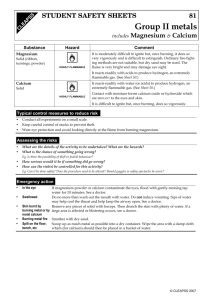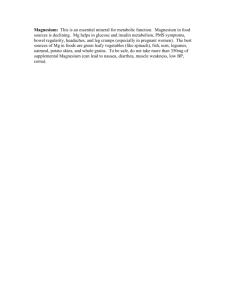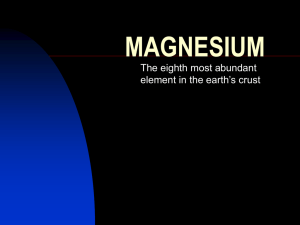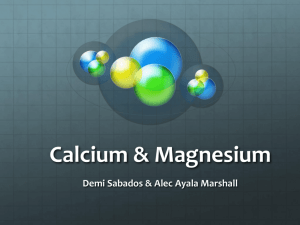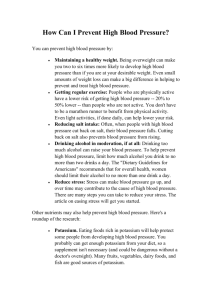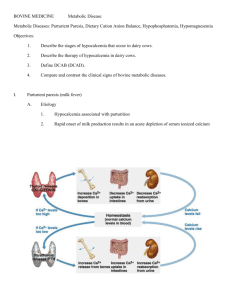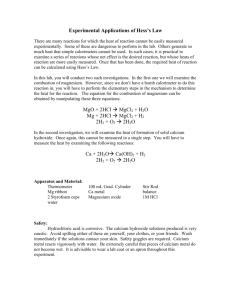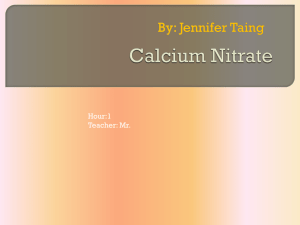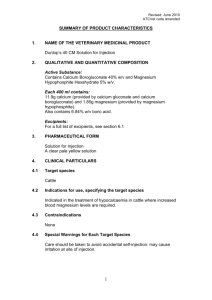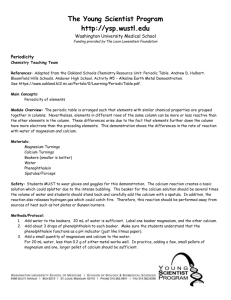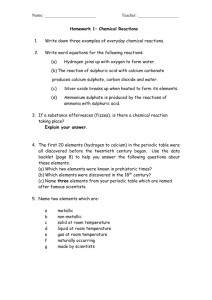HEALTHY EATS THE IMPORTANCE OF CALCIUM AND
advertisement
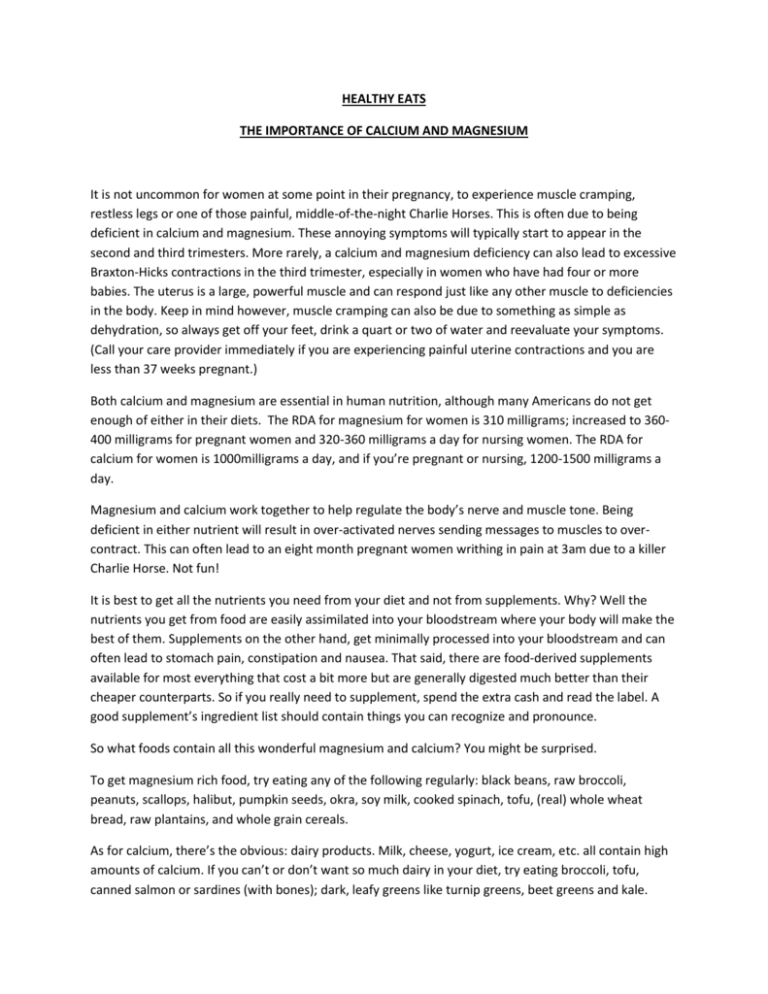
HEALTHY EATS THE IMPORTANCE OF CALCIUM AND MAGNESIUM It is not uncommon for women at some point in their pregnancy, to experience muscle cramping, restless legs or one of those painful, middle-of-the-night Charlie Horses. This is often due to being deficient in calcium and magnesium. These annoying symptoms will typically start to appear in the second and third trimesters. More rarely, a calcium and magnesium deficiency can also lead to excessive Braxton-Hicks contractions in the third trimester, especially in women who have had four or more babies. The uterus is a large, powerful muscle and can respond just like any other muscle to deficiencies in the body. Keep in mind however, muscle cramping can also be due to something as simple as dehydration, so always get off your feet, drink a quart or two of water and reevaluate your symptoms. (Call your care provider immediately if you are experiencing painful uterine contractions and you are less than 37 weeks pregnant.) Both calcium and magnesium are essential in human nutrition, although many Americans do not get enough of either in their diets. The RDA for magnesium for women is 310 milligrams; increased to 360400 milligrams for pregnant women and 320-360 milligrams a day for nursing women. The RDA for calcium for women is 1000milligrams a day, and if you’re pregnant or nursing, 1200-1500 milligrams a day. Magnesium and calcium work together to help regulate the body’s nerve and muscle tone. Being deficient in either nutrient will result in over-activated nerves sending messages to muscles to overcontract. This can often lead to an eight month pregnant women writhing in pain at 3am due to a killer Charlie Horse. Not fun! It is best to get all the nutrients you need from your diet and not from supplements. Why? Well the nutrients you get from food are easily assimilated into your bloodstream where your body will make the best of them. Supplements on the other hand, get minimally processed into your bloodstream and can often lead to stomach pain, constipation and nausea. That said, there are food-derived supplements available for most everything that cost a bit more but are generally digested much better than their cheaper counterparts. So if you really need to supplement, spend the extra cash and read the label. A good supplement’s ingredient list should contain things you can recognize and pronounce. So what foods contain all this wonderful magnesium and calcium? You might be surprised. To get magnesium rich food, try eating any of the following regularly: black beans, raw broccoli, peanuts, scallops, halibut, pumpkin seeds, okra, soy milk, cooked spinach, tofu, (real) whole wheat bread, raw plantains, and whole grain cereals. As for calcium, there’s the obvious: dairy products. Milk, cheese, yogurt, ice cream, etc. all contain high amounts of calcium. If you can’t or don’t want so much dairy in your diet, try eating broccoli, tofu, canned salmon or sardines (with bones); dark, leafy greens like turnip greens, beet greens and kale. Even eggs and cornbread hold calcium, although at a lower percentage. There’s also herbs that are very calcium rich and nutritive, that can be easily be taken in by drinking as a tea. Try nettles, red raspberry leaf, oatstraw, and red clover if you’re pregnant or nursing. These combinations can easily be found in most commercially prepared teas for pregnancy or lactation. Or you can always buy them in bulk and create your own combination. They’re tasty and good for you! Remember to always discuss any symptoms and/or concerns you have with your care provider before embarking on self-diagnosis. Eat well and stay hydrated! -Amanda Topping , CPM The Birth Project, 2009
